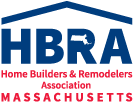Your home may be filled with items that are no longer useful but can potentially be manufactured into new products. Not only will getting rid of household items declutter your home, it also will help reduce waste sent to landfills, conserve natural resources and create jobs in recycling and manufacturing industries in the United States. Before you toss out your unwanted household items, consider recycling the following:
Glass: Bottles, jars and non-food glass containers such as perfume or face creams are recyclable. It is important to clean and dry items before recycling them. Leftover particles or liquids can contaminate other recyclables. Corks should be removed from bottles and can be composted. Larger glass items such as vases, glass drinking cups, window glass and glass cookware cannot be recycled. Lightbulbs are also not recyclable.
Paper: Beyond documents, many types of paper can be recycled. Mixed paper is a common household item and can include discarded mail, magazines and cardboard. Your home office may contain recyclable content such as letterhead, files, phone books, copier paper or envelopes. Shredded paper is recyclable. Do not recycle paper that is wet, greasy or soiled. Tainted paper is unsuitable for reuse.
Large Appliances: Even if a household item does not fit snug in a curbside pickup container it still may be acceptable for recycling. Large household appliances such as stoves, washing machines, refrigerators or dishwashers are eligible for recycling. Appliances contain metal that can be reclaimed. You may be eligible for a rebate from a local retailer or utility company if you turn in your old appliance for a new energy-efficient unit. Your local waste management or public works department may have curbside pick-up available. Local scrap metal recyclers may be interested in your old appliances as well.
Hazardous Materials: Toxic materials should be carefully disposed of to prevent harm to people or the environment. Older materials found in your home, garage or shed can be considered dangerous, such as paint stripper with the newly banned toxic chemical methylene chloride. This type of toxic substance should be removed from your home with the appropriate personal protective clothing such as gloves. Empty containers may have hazardous residual chemicals. If your community does not have a local hazardous material recycling center or designated days for pickup, some businesses could properly dispose the substance. For example, some garages may accept used motor oil for recycling.
Plastic: Jugs, jars and bottles that are plastic can be recycled. Like glass, plastic items must be cleaned and dry before it can be recycled. Keep in mind that plastic cannot only be found in the kitchen. Your bathroom may have items that can be recycled as well such as shampoo, liquid soap or mouth wash. Empty plastic detergent or cleaning bottles in your laundry room or utility closet are also ideal for recycling.

